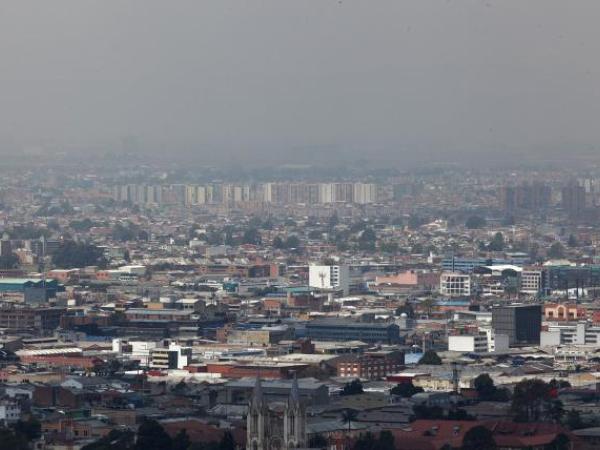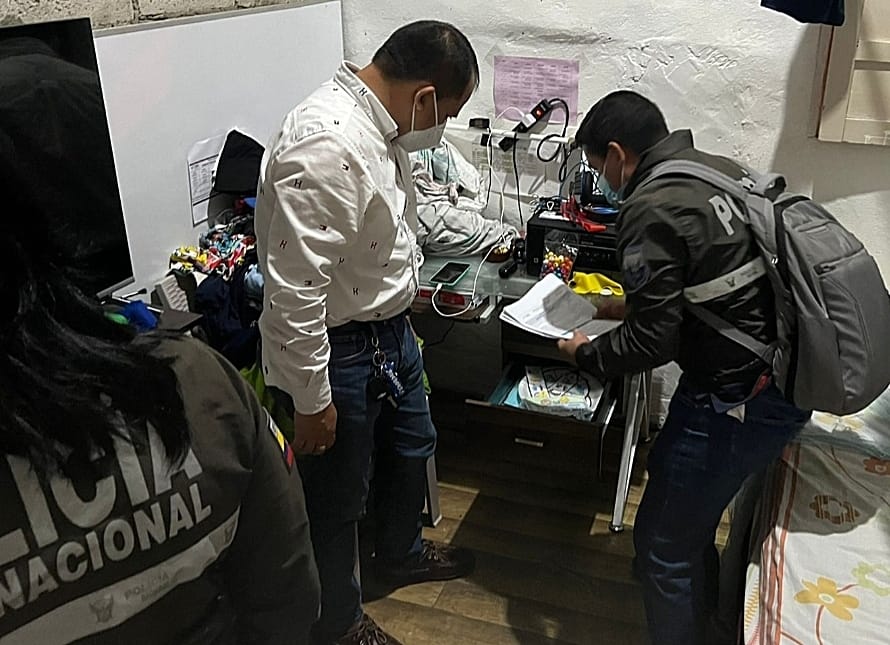The Bogota City Hall declared the environmental alert due to the impact on the air quality, due to the high concentrations of particulate material recorded during the last days.
(See: Environmental and hospital alert declared in Bogotá).
“On January 25, the forest fires began in Guaviare. We began to feel the effect of this increased environmental pollution as of February 1, and more than half of the stations in the city went from moderate to regular”, explained the mayor of Bogotá, Claudia López.
On the subject, the Observatory of Public Health and Epidemiology of the Universidad de los Andes He assured that, although forest fires have been presented as a source of emission, Bogotá also releases pollutants into the atmosphere, especially by mobile fonts 60%, by freight transport and public transport.
(See: Internal migration to Bogotá fell during the last decade).
Thus, “There is an urgent need for the territorial entity to have organized responses that guarantee citizen and institutional participation, that allow the prevention of health effects due to air pollution and promote intersectoral actions to maintain clean air in the city.”, the university said in a statement.
Likewise, the institution gave a series of health recommendations due to the increase in air quality pollution in the capital, while it is in the midst of the fourth peak of covid-19.
(See: Bogotá: Mayor’s Office postponed the first Car-Free Day of the year).
And insisted that the yellow alert decreed by the Ministry of the Environment must generate health recommendations, but in the context of covid-19 that is going through the city and the country, for which the interventions must also be oriented towards prevention and shortening chains of transmission from cases confirmed by laboratory or epidemiological link.
1. Recommendations for the vulnerable population: the population with respiratory and/or cardiovascular diseases, pregnant women and people over 60 years of age should preferably use the N95 mask. Cloth or surgical masks are not efficient in exposure to air pollution.
2. The population with respiratory and/or cardiovascular diseases, pregnant women, people over 60 years of age and people under five years of age should refrain from moderate physical activity. A person doing moderate-intensity physical activity should be able to hold a conversation, but with some difficulty, while doing the activity. What is moderate intensity physical activity? it can be riding a bicycle 16-9 km/h, walking at 4-6 km/h, avoid performing competitive or sports physical activity.
A person doing moderate-intensity physical activity should be able to hold a conversation, but with some difficulty, while doing the activity.
3. Important to keep in mind not to smoke under no circumstances indoors or outdoors, be alert for warning signs with symptoms such as drowning, dizziness, cough, eye irritation and discomfort or pain in the chest.
(See: The cities of the country with the most traffic accidents).
4. The EPS must activate a care plan to its affiliated population in an effective way that implies giving communication and information to users who have underlying diseases.
5. It is recommended that the Ministry of the Environment, together with the Ministry of Health and its peers from Cundinamarca, zone or sectorize the areas of Bogotá with the greatest exposure to poor air quality and levels of particulate matter, as well as its area of influence. The recommendations must identify the most vulnerable populations by zones in Bogotá.
6. Identify warning signs for the population of school age for which the family, the kindergarten and the community are responsible, so it is important to know if the child has rapid breathing, that is, children under two months of age breathe 60 or more times per minute, children of 2 months to 11 months breathe 50 or more times per minute, children 1 to 4 years old breathe 40 or more times per minute. In addition, if the child’s ribs collapse when breathing, has strange noises such as whistling in the chest or boiling, if the child cannot eat or drink anything and vomits everything, if he is less than two months old and has a fever or if he is older than 2 months and has a fever greater than 38.5 degrees Celsius for more than two days, if he is drowsy or has seizures.
(See: Government signs the contract for ALO Sur, the 5G project for Bogotá).
In school-age children, adolescents and adults, choking or difficulty breathing is an alarm signal; chest pain when breathing or coughing, weakness or excessive tiredness or fever greater than 38.5 degrees Celsius for more than two days of evolution.
In Bogotá for the year 2019, mortality attributable to poor air quality was 2,403 deaths, according to the WHO AIRQ+ tool.
BRIEFCASE

















